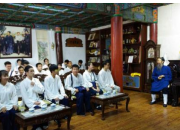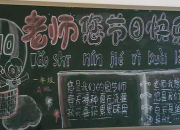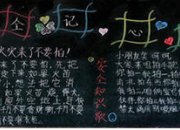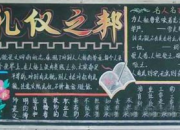伤害简历六种致命错误
时间:2021-08-31伤害简历六种致命错误
what not to do: 6 ways to ruin your resume
in the time it takes you to read this paragraph, the average recruiter will have plowed through six resumes. (we know; we timed one.) want to increase the chances of your resume making it to the next round? then don’t do any of these seven things, which recruiters say — more than anything — make them want to push the “shred” button.
让我们不妨花一些时间来阅读下面的`文章。 平均每个招聘人员都会仔细的在六份简历中挑选其中一份, 我们知道, 他们仅仅需要一份。 想增加你履历进入下一轮的机会吗? 如果想, 招聘人员告诉我们,使他们不想对你的简历按红灯的办法是, 不要犯以下七种错误。
1. apply for a job for which you are not remotely qualified (申请和自己能力相差过于悬殊的职位)
many candidates believe the job hunt is a numbers game — drop enough resumes, and you’re bound to land something. but shotguns are for hunting pheasant, not finding jobs. the reality is that recruiters hate wasting time on resumes from unqualified candidates. morgan miller, an executive recruiter at staffmark, recalls the security guard who applied to be a financial risk manager (maybe lehman should have hired him), while scott ragusa at winter, wyman talks of the aerial photographer who sought out a position as a tax specialist.
“sorting through unqualified resumes is frustrating, unproductive and puts an extra burden on staff,” says katherine swift, senior account director at kcsa strategic communications in natick, mass. “it also makes it much more challenging to find the right candidate.” so the next time you’re thinking of blasting out resumes to all 60 of the job listings on monster.com that have the word “finance” in them , save your time (and that of the recruiters) and only apply for ones for which you’re qualified.
2. include a lofty mission statement (申请动机过于崇高--申请的动机要切合公司需要, 你能为公司带来什么)
more than ever, today’s savage job market is about the company, not the candidate. as such, mission or objective statements — particularly ones with an applicant’s hopes, dreams, and health insurance aspirations — will dispatch otherwise fine resumes to the circular file. employe
rs don’t care about how they can solve your problems — certainly not before they’ve met you and possibly not even after they’ve hired you. instead, write an “objectives” statement that explains specifically how your skills and experience will help the company you’re applying to, not the other way around. and be very clear about what kind of job you’re seeking.
3. use one generic resume for every job listing (用一通用简历申请各种类型的职位)
to stand out amongst the sea of resumes that recruiters receive, yours must speak to each and every specific position, even recycling some of the language from the job description itself. make it obvious that you will start solving problems even before you’ve recorded your outgoing voicemail message. your cv or query letter should include a just touch of industry lingo — sufficient to prove you know your stuff but not so much that you sound like a robot. and it should speak to individual company issues and industry challenges, with specifics on how you have personally improved customer loyalty, efficiency, and profitability at past jobs, says workplace and performance consultant jay forte. plus, each morsel should be on point.
“think hard about how to best leverage each piece of information to your job search advantage,” says wendy enelow, a career consultant and trainer in virginia. “nothing in your resume should be arbitrary, from what you include in your job descriptions and achievement statements, to whether your education or experience comes first [recent grads may want to put education first] to how you format your contact information.”
4. don’t explain how past experience translates to a new position (没有说明过去工作经验会在多大程度上转移到新职位上)
though candidates should avoid jobs where they have no experience, they absolutely should pursue new areas and positions if they can position their experience effectively. a high school english teacher applying for new jobs, for example, can cite expertise in human resource management, people skills,
record keeping, writing, and training, says anthony pensabene, a professional writer who works with executives.
“titles are just semantics; candidates need to relate their ‘actual’ skills and experiences to the job they’re applying for in their resume,” pensabene says. an applicant who cannot be bothered to identify the parallels between the two likely won’t be bothered with interviews, either.
5. don’t include a cover letter with your resume (不带求职信的简历)
a cover letter should always accompany a resume — even if it’s going to your best friend. and that doesn’t mean a lazy “i’m _____ and i’m looking for a job in new york; please see my attached resume.” says lindsay olson, a partner at manhattan’s paradigm staffing: “i’d like to know why you are contacting me (a particular position, referral, etc.), a short background about yourself, and a career highlight or two. it’s important to attempt to set yourself apart from the competition.”
6. be careless with details (不关注细节)
reckless job hunters rarely make for conscientious workers. as such, even promising resumes must abide by age-old dictums: typo-free, proper organization, and no embellishment. susan whitcomb, author of resume magic: trade secrets of a professional resume writer, says that almost 80 percent of hr managers she surveyed said they would dismiss otherwise qualified candidates who break these rules. she tells the story of one would-be employer who, when looking for an assistant, decided not to hire anyone because every resume she received contained typos.
“with a 6-to-1 ratio of jobseekers-to-jobs in the current marketplace, you can’t afford to make mistakes with your resume,” whitcomb says.
【伤害简历六种致命错误】相关文章:
1.简历的致命错误
2.简历的致命错误
7.英文简历致命错误











